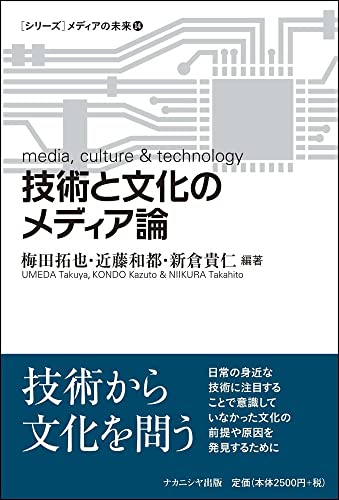5 0 0 0 OA 社会理論とメディア研究
- 著者
- 梅田 拓也
- 出版者
- 日本マス・コミュニケーション学会
- 雑誌
- マス・コミュニケーション研究 (ISSN:13411306)
- 巻号頁・発行日
- vol.92, pp.87-104, 2018-01-31 (Released:2018-05-10)
- 参考文献数
- 29
The purpose of this paper is to reconsider the perspective of Niklas Luhmann’smass media theory through interpreting his works. Luhmann constructeda mass media theory which described mass communication as a socialsystem. Some previous studies have paid attention to the significance of histheory and attempted to apply it in different empirical studies while othershave criticized his theory because he abstracted and confirmed the practicalproblems of journalism. However, it has yet to be shown what problem inmedia studies Luhmann himself attempted to solve. This paper analyses theperspective of Luhmann’s theory by focusing on the relationship between histheory and radical constructivism. Radical constructivism is an epistemologicalmedia theory that has been popular in German media studies since the 1990s,and Luhmann also frequently referred to it in his works about mass media. Asa result,( 1) this paper clarifies that the radical constructivism theory criticizedjournalism practices in terms of epistemological problems, and thereby hinderedjournalism and its social function. Thus, media theorists who sympathized withradical constructivism attempted to fill this divergence of the radical constructivismtheories and practices of journalism. In addition, (2) this paper arguesthat Luhmann also attempted to solve the problem. He avoided the epistemologicaland normative discussion of journalism and redefined the function ofmass media in the theory of a functionally differentiated society. In conclusion,this paper demonstrates the significance of the social theory in media studiesby interpreting the perspective of Luhmann’s media theory.
2 0 0 0 技術と文化のメディア論
- 著者
- 梅田拓也 近藤和都 新倉貴仁編著
- 出版者
- ナカニシヤ出版
- 巻号頁・発行日
- 2021
1 0 0 0 IR 文学研究とメディア論 : マクルーハンとキットラー
- 著者
- 梅田 拓也
- 出版者
- 大学院英文学研究会/リーディング編集部
- 雑誌
- リーディング = Reading (ISSN:21868670)
- 巻号頁・発行日
- no.39, pp.59-70, 2019-03-25
特集 媒介される文学
